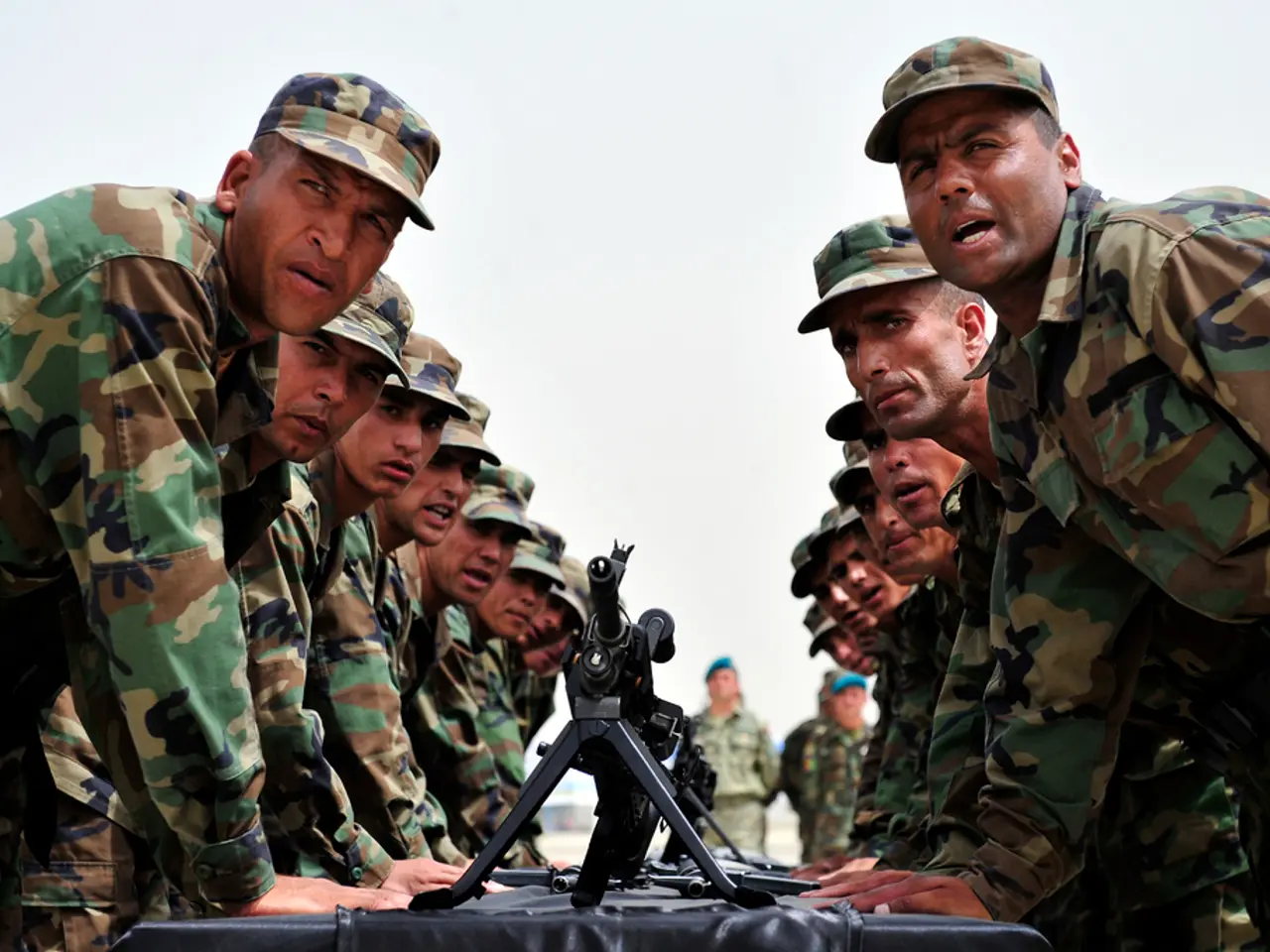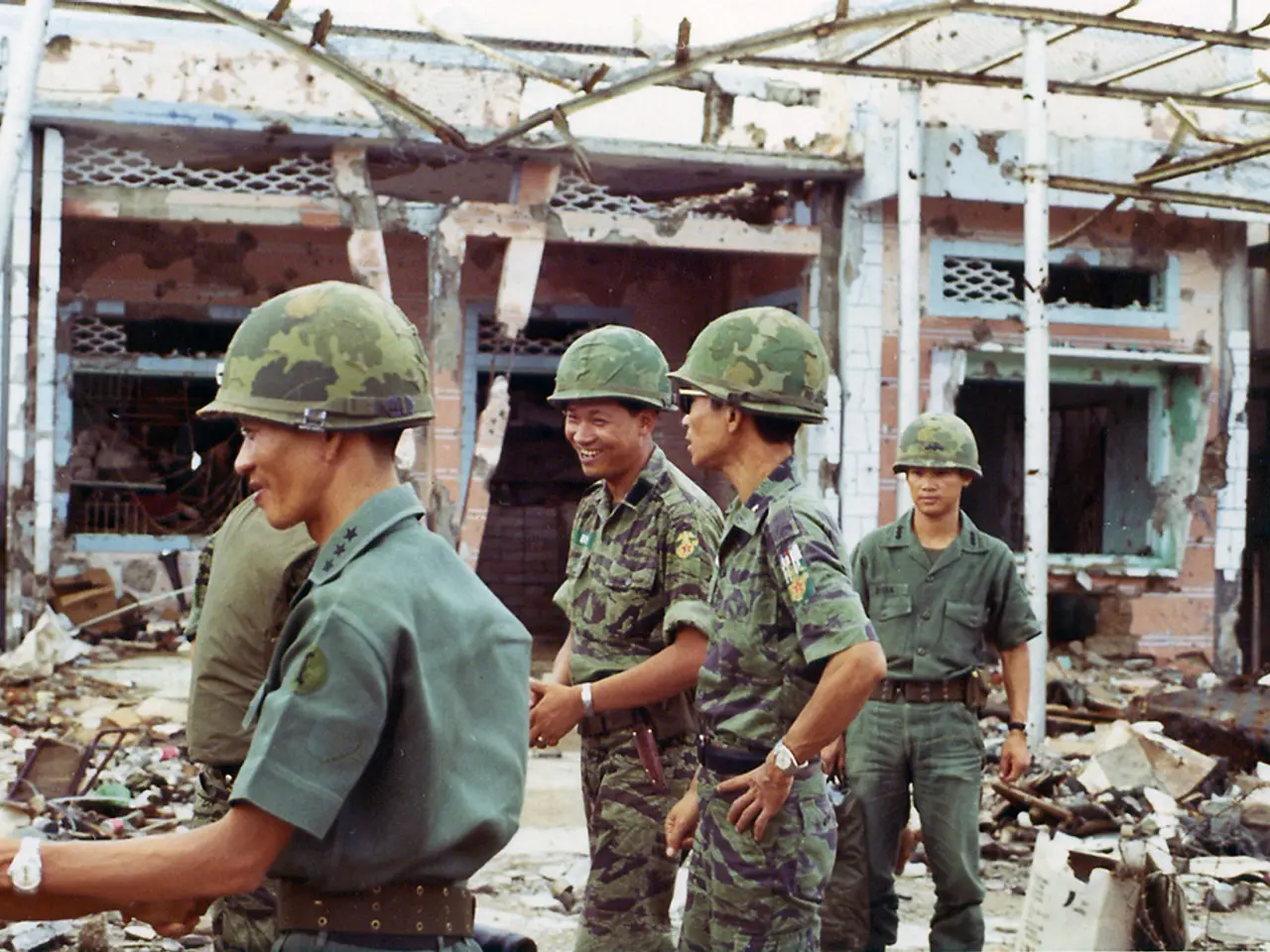Unknown Quantity of Civilian Aid Volunteers Remains Unidentified by Government Authorities - Number of Civil Protection Workers Remains Unknown to Government
In a recent inquiry, Member of Parliament (MP) Jan Koestering sought to understand the number of deployable volunteers from Germany's renowned aid organisations, such as the THW, DRK, Johanniter, Malteser, DLRG, and the German Red Cross (ASB), who are also serving in the federal government. However, the Ministry of the Interior's response did not provide a clear answer to this question.
The ministry's statement emphasised that neither the Bundeswehr nor other federal organs nor the mentioned aid organisations currently record double memberships in other authorities and organisations. This suggests that there may be no official data available on the number of volunteers from these aid organisations who are simultaneously active in other roles, such as in the fire brigade, police, or the Bundeswehr.
The ministry's response also did not address the specific question about the number of volunteers who are also serving in the federal government. It is worth noting that the federal government holds responsibility for civil defense, ensuring the protection of the population and vital infrastructure in a state of tension or defense.
In terms of the military reserves, the Bundeswehr currently boasts approximately 100,000 trained reservists. Plans are underway to increase this number through voluntary service schemes, with the aim of potentially doubling the number of trained reservists and increasing the total active soldier count from 180,000 to 260,000. This could imply a potential increase in volunteer personnel involved in defense-related capacities, including civil defense tasks such as guard duties.
Regarding civil defense volunteers in other domains such as voluntary fire brigades or local authorities, data specific to Germany is not readily available. While the scale of voluntary fire brigades in Poland (around 15,973 brigades) is mentioned, there is no comparable updated number for Germany in the sources.
The ministry's statement did not provide the number of deployable volunteers from the mentioned aid organisations who are also serving in the federal government. MP Koestering's question focused on volunteers who are serving in the federal government context of territorial and alliance defense.
The recent forest fires have underscored the limitations of volunteer fire departments and the need for reforms in disaster protection. MP Koestering has called for reforms, citing these limitations and the need to end the long-standing tug-of-war between the federal government, states, and municipalities.
National defense is an important topic in the discussion of disaster protection. The federal states are responsible for disaster protection in Germany, including major fires, criminal cyber attacks, and natural disasters.
For more detailed or official numbers, reports or communications from the German Federal Ministry of Defence or the Federal Office for Civil Protection and Disaster Assistance (BBK) would likely be the most reliable sources. It is also worth noting that members of professional groups like the mentioned aid organisations might not be available for supplying the population with essential services during a state of tension or defense.
- The ministry's statement did not clarify the number of volunteers from aid organizations like THW, DRK, Johanniter, Malteser, DLRG, and ASB who are concurrently serving in the federal government, which is a subject of policy-and-legislation and politics, especially in the context of war-and-conflicts and general-news pertaining to national defense and civil defense.
- The federal government's responsibility for civil defense, including protection of the population and vital infrastructure, raises questions about the implications of employment policy within aid organizations, where volunteers may also hold roles in other authorities and organizations such as the fire brigade, police, Bundeswehr, or other defense-related capacities.







